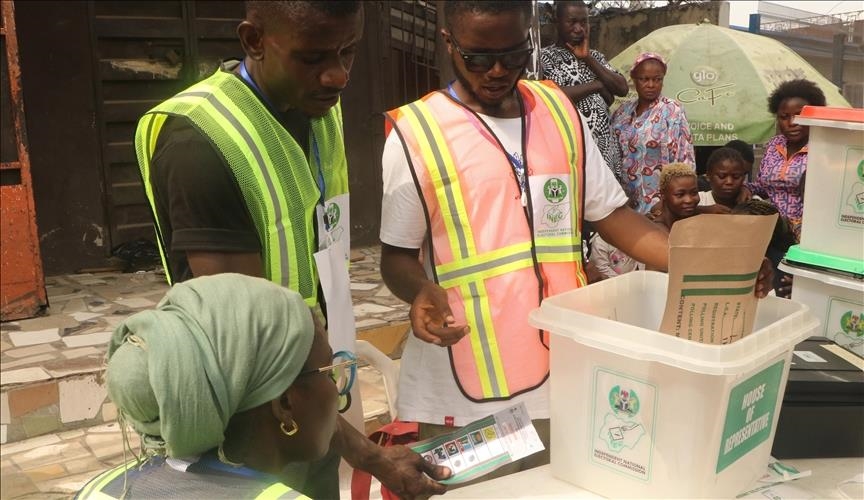KANO, Nigeria
Tensions were rising in Nigeria as authorities slowly counted more votes on Monday after a tightly contested election in Africa’s largest democracy.
Results released so far show the ruling All Progressives Congress (APC) party has an early lead, but the two main opposition forces – the Peoples Democratic Party (PDP) and Labour Party – are already crying foul.
The election commission has officially tallied results in seven of Nigeria’s 36 states, while unofficial reports place the figure at nine.
The PDP accused the APC of trying to manipulate results in three major states, including the commercial hub Lagos.
At a news conference, PDP official Dele Momodu said the party is “calling on the Independent National Electoral Commission (INEC) to shun any act of tampering … as being attempted by some state governors.”
Julius Abure, chairman of the Labour Party, struck a similar note in a separate statement, saying the party is “shocked” by reports of APC’s attempts to rig the results.
In the southern Rivers state, he said “thugs believed to be agents of the state government invaded various polling units and collation centers and took away election materials, including the results sheets.”
These individuals tampered with Bimodal Voter Accreditation System (BVAS) machines and uploaded fake results to the central election portal, Abure added.
Fears of violence
INEC head Mahmood Yakubu has tried to assuage growing concerns over the vote count, asserting that the electoral watchdog will ensure complete transparency.
However, the sluggish pace is fueling anxiety in the country that threatens to spill over into violence.
Saturday’s voting, though marked by delays, was largely peaceful.
There were, however, reports of sporadic violence, with at least two people killed in an attack on an election office of a New Nigeria Peoples Party (NNPP) candidate.
In Lagos, police said unidentified people armed with knives and sticks attacked polling stations and officials.
In a statement on Monday, police spokesperson Olumuyiwa Adejobi called on all parties to play their part to maintain peace.
Citing “a series of intelligence reports,” he urged all presidential candidates to “caution their party supporters to avoid making inciting comments.”
Pivotal vote for Nigeria
More than 93 million people were registered to vote for a successor to President Muhammadu Buhari and lawmakers for both chambers of parliament.
The race for president has narrowed down to three serious contenders: veteran politicians Bola Tinubu and Atiku Abubakar and new challenger Peter Obi.
Tinubu, 70, is from Buhari’s ruling APC and has previously served as a senator and governor of Lagos.
Abubakar, a 76-year-old businessman who was Nigeria’s vice-president from 1999 to 2007, is the candidate for the main opposition PDP, his record sixth shot at the top office.
At 61, Labour Party candidate Obi is the youngest in the three-way contest.
The former two-time governor of Anambra, a state in southeastern Nigeria, has been polling strongly in the lead-up to the general elections, with some surveys projecting him as the winner.
For most Nigerians, whoever succeeds Buhari has to tackle the protracted security crisis, economic woes, youth unemployment and dissatisfaction, and an overall sense of untapped potential in Africa’s most populous – and one of its most influential – country.

